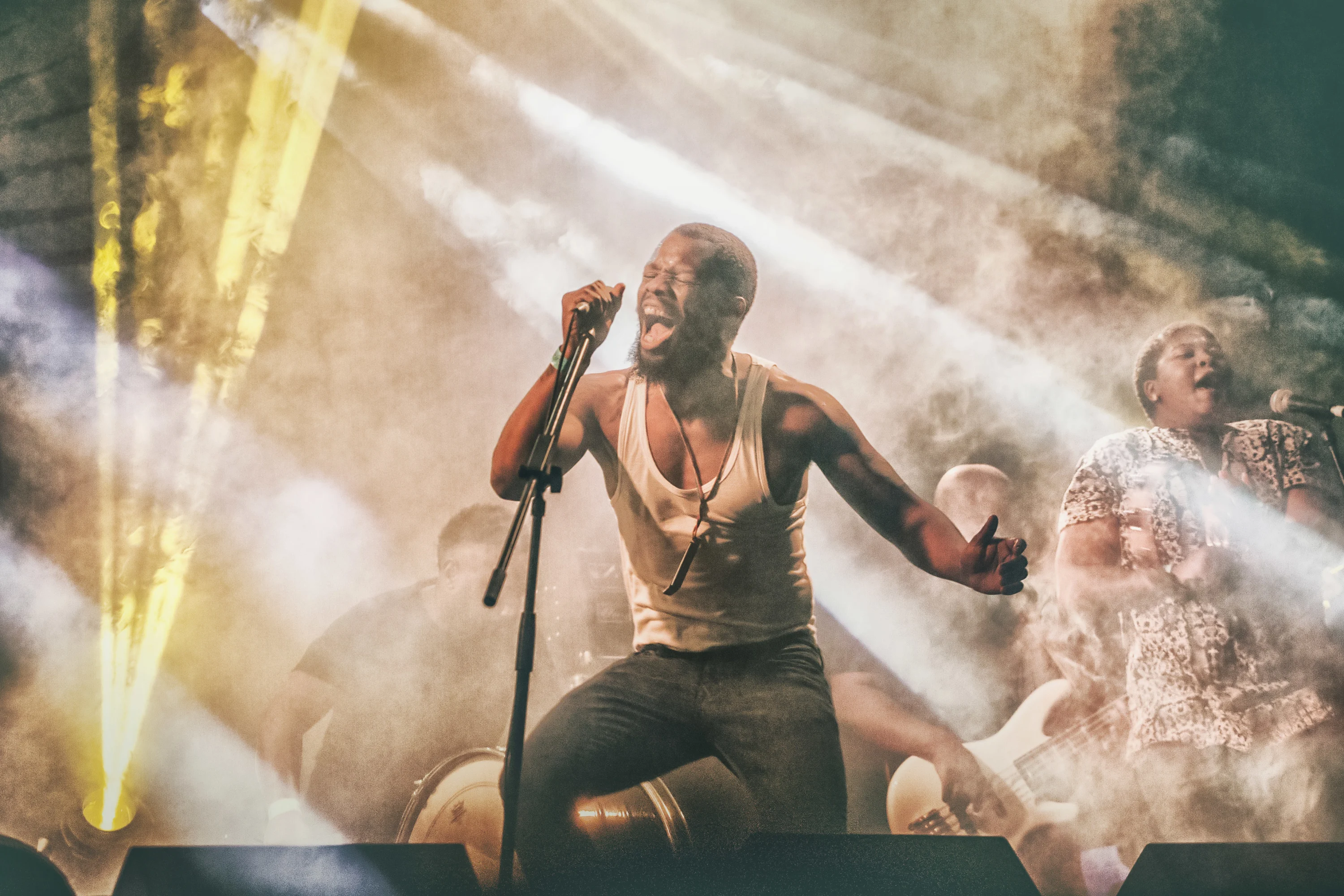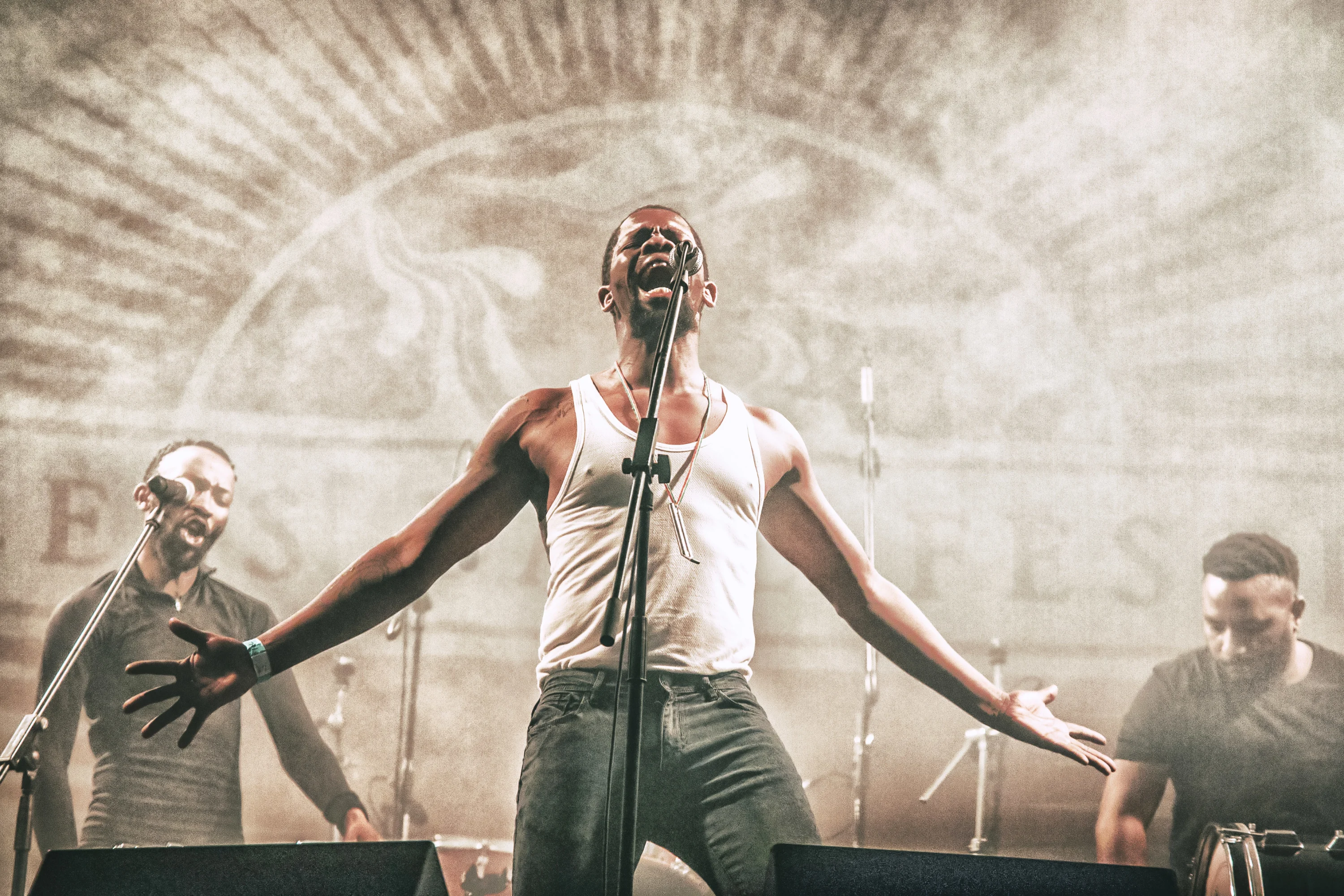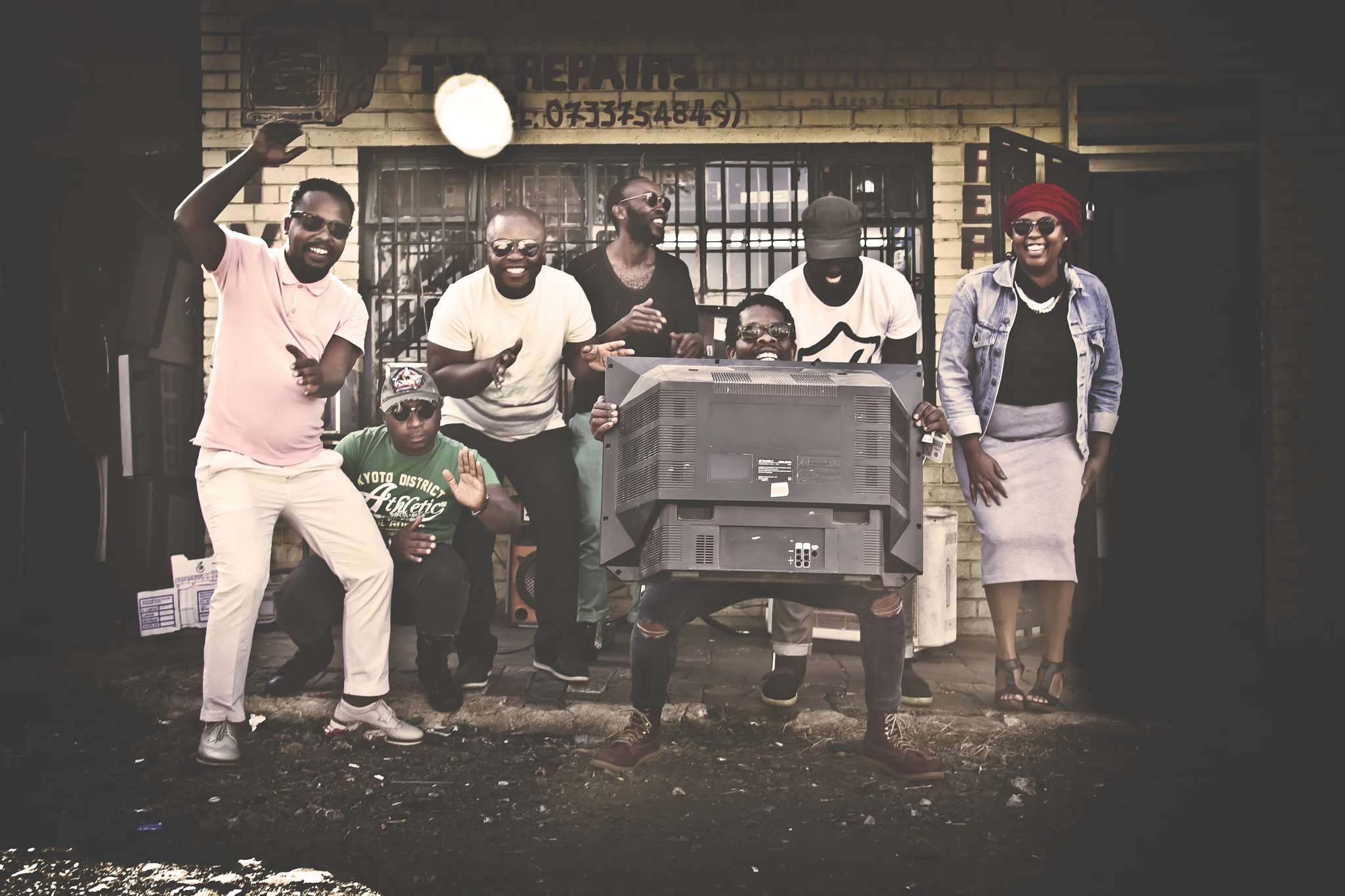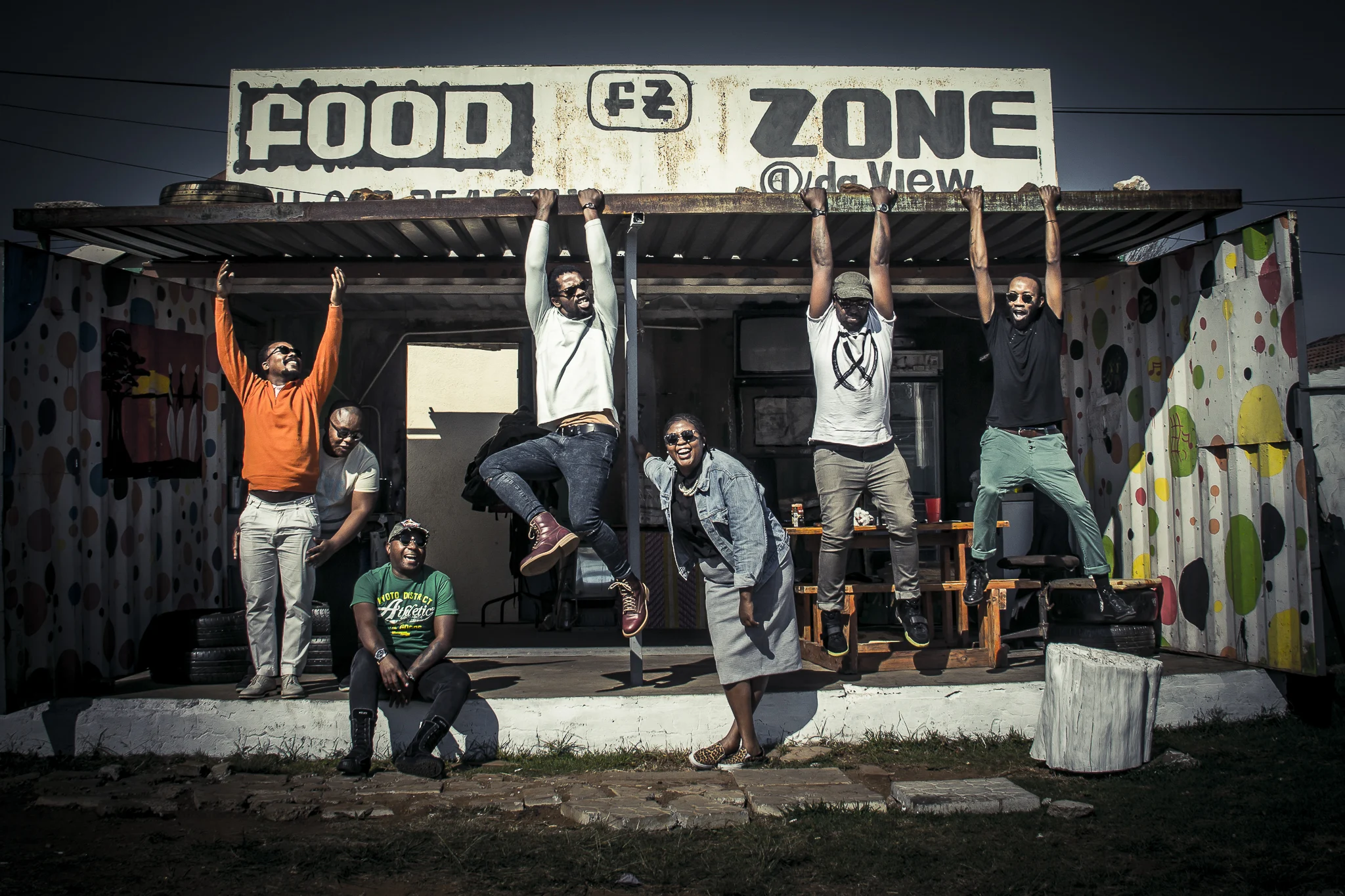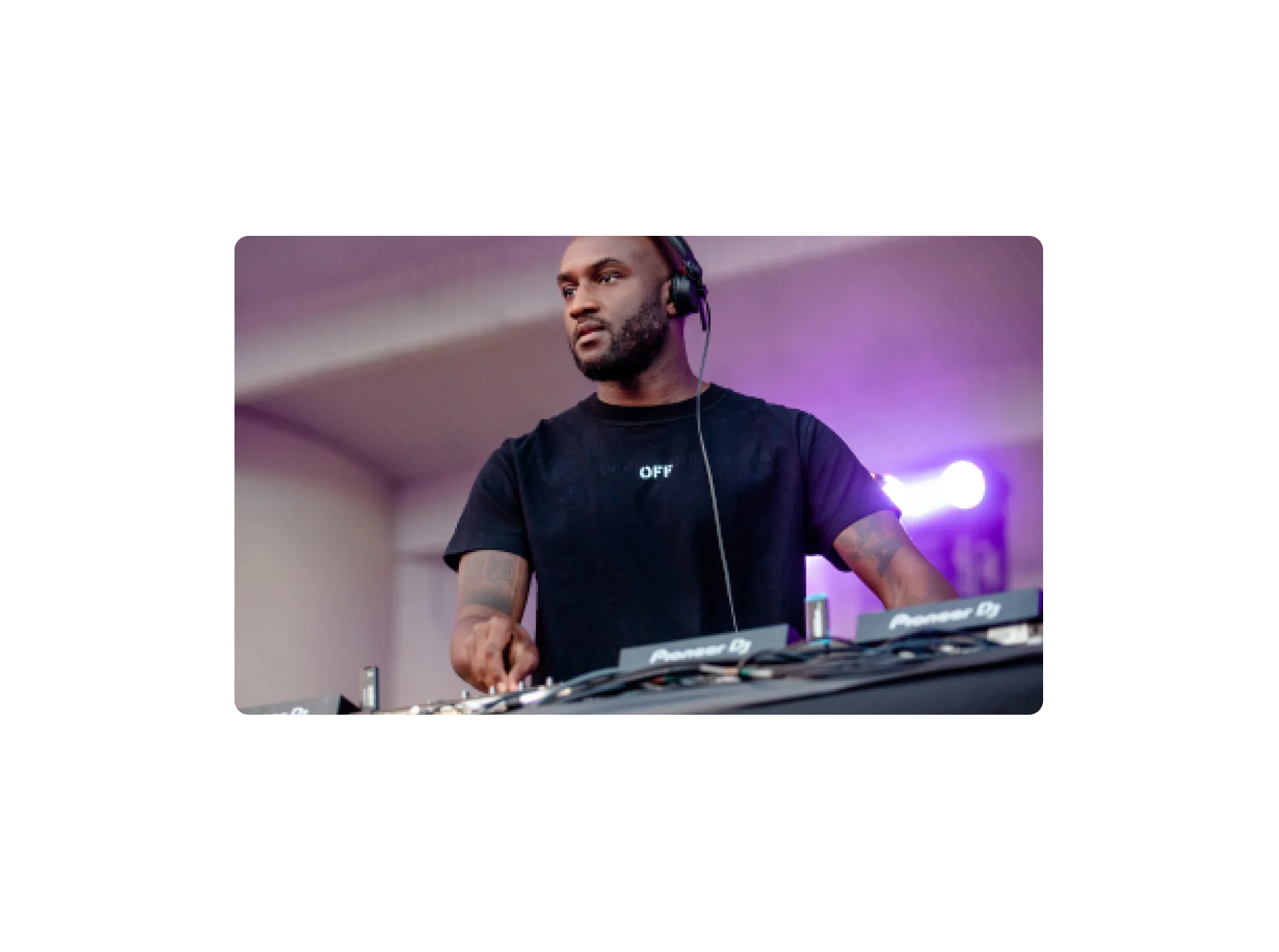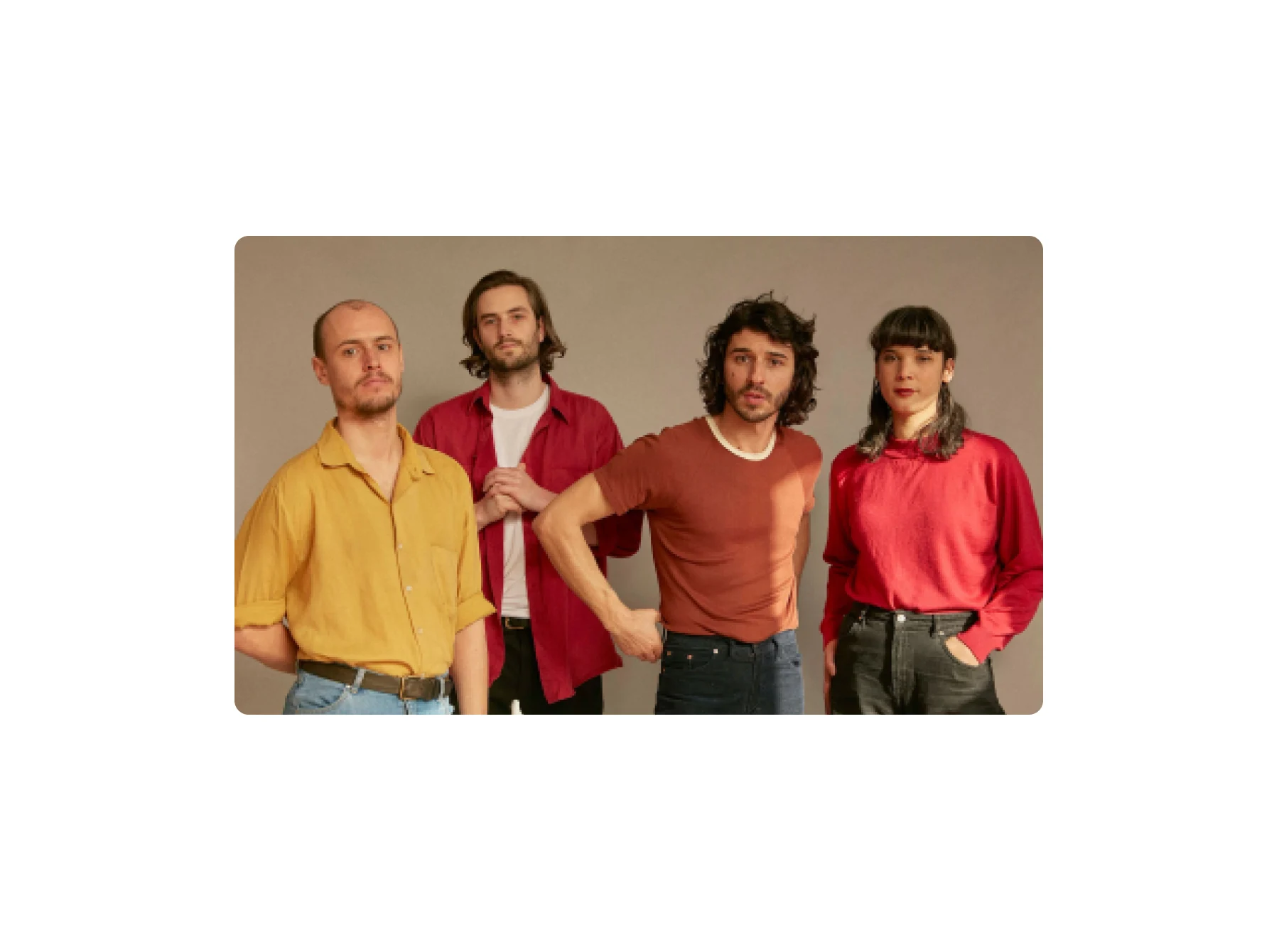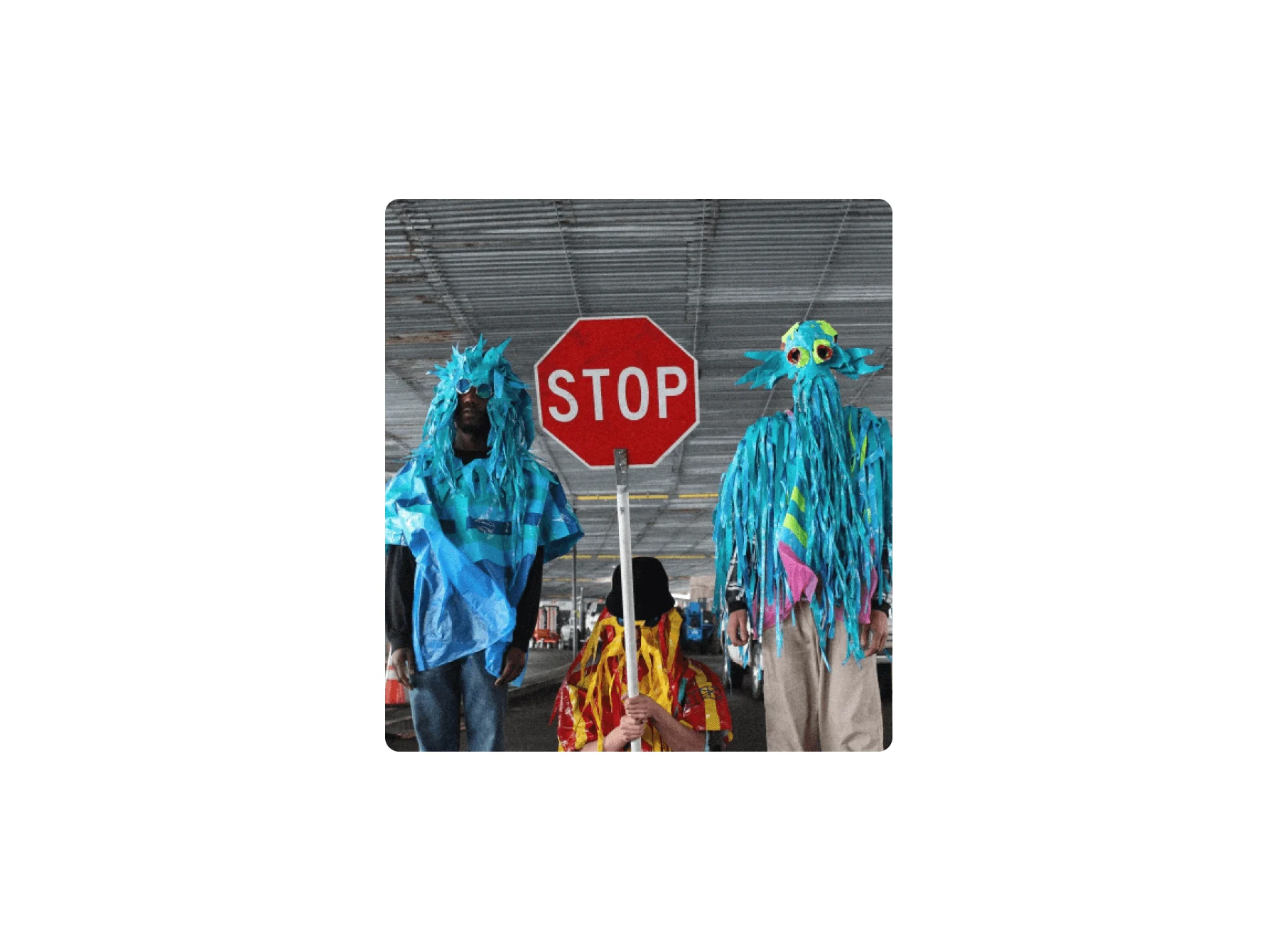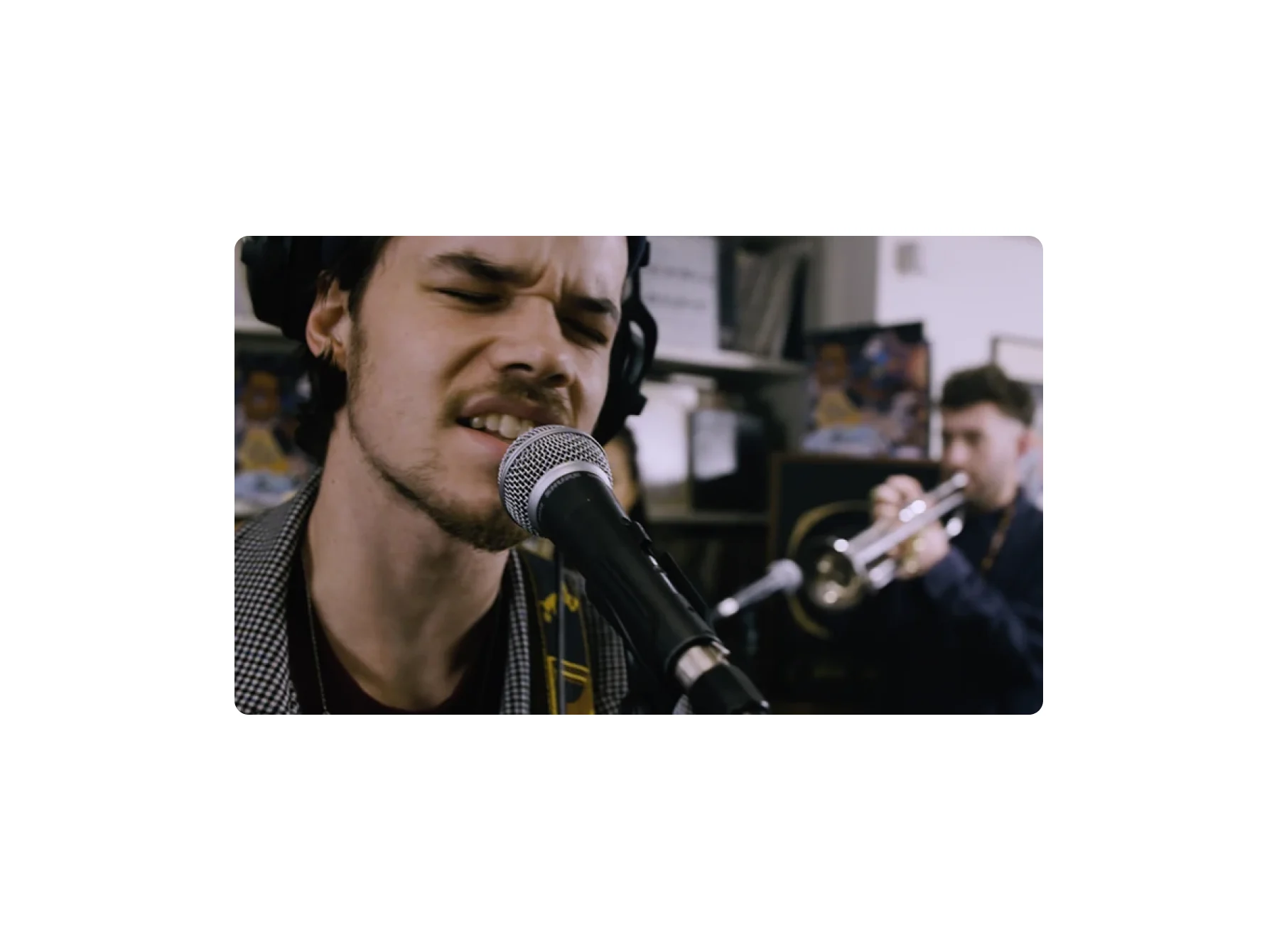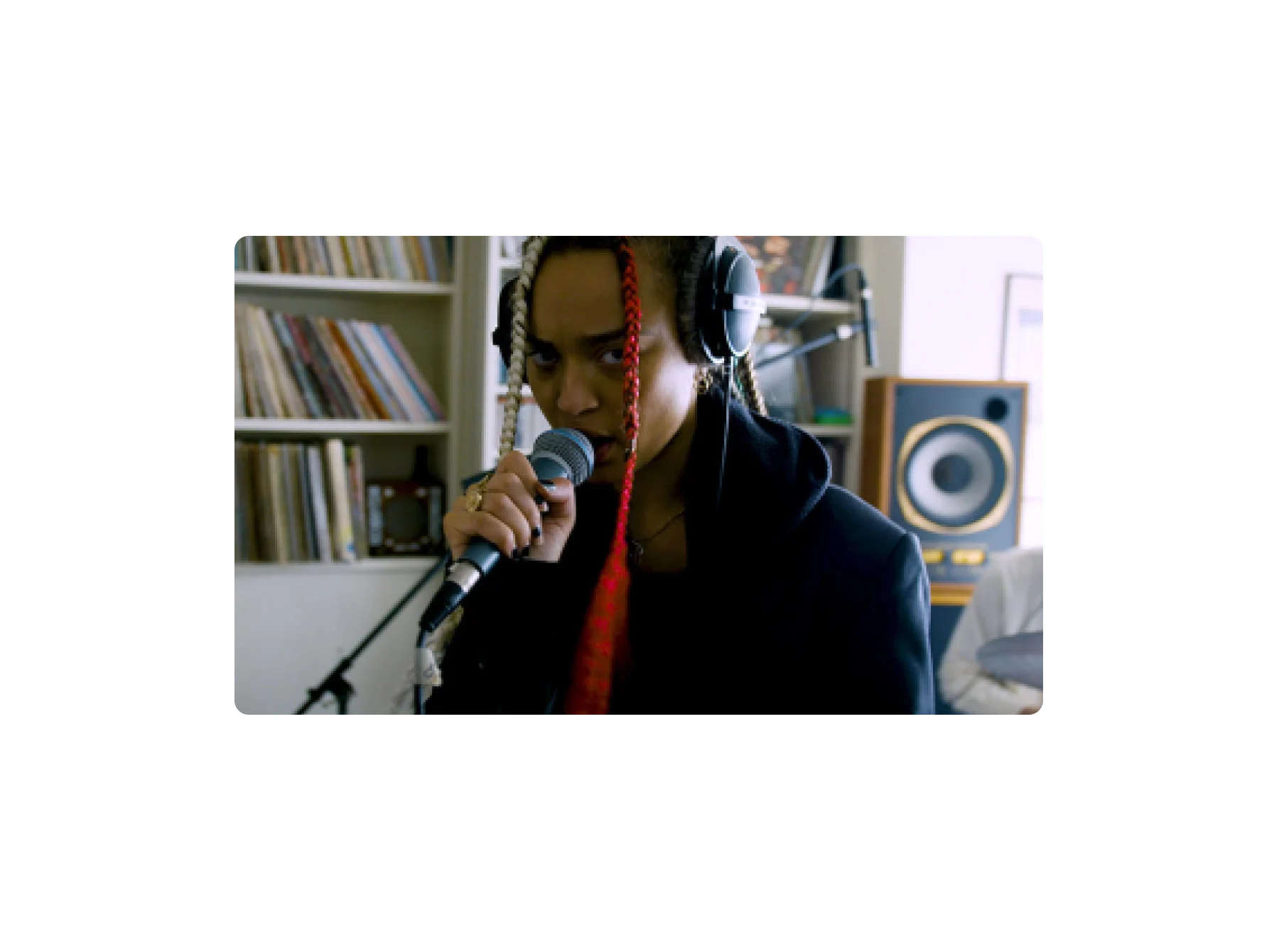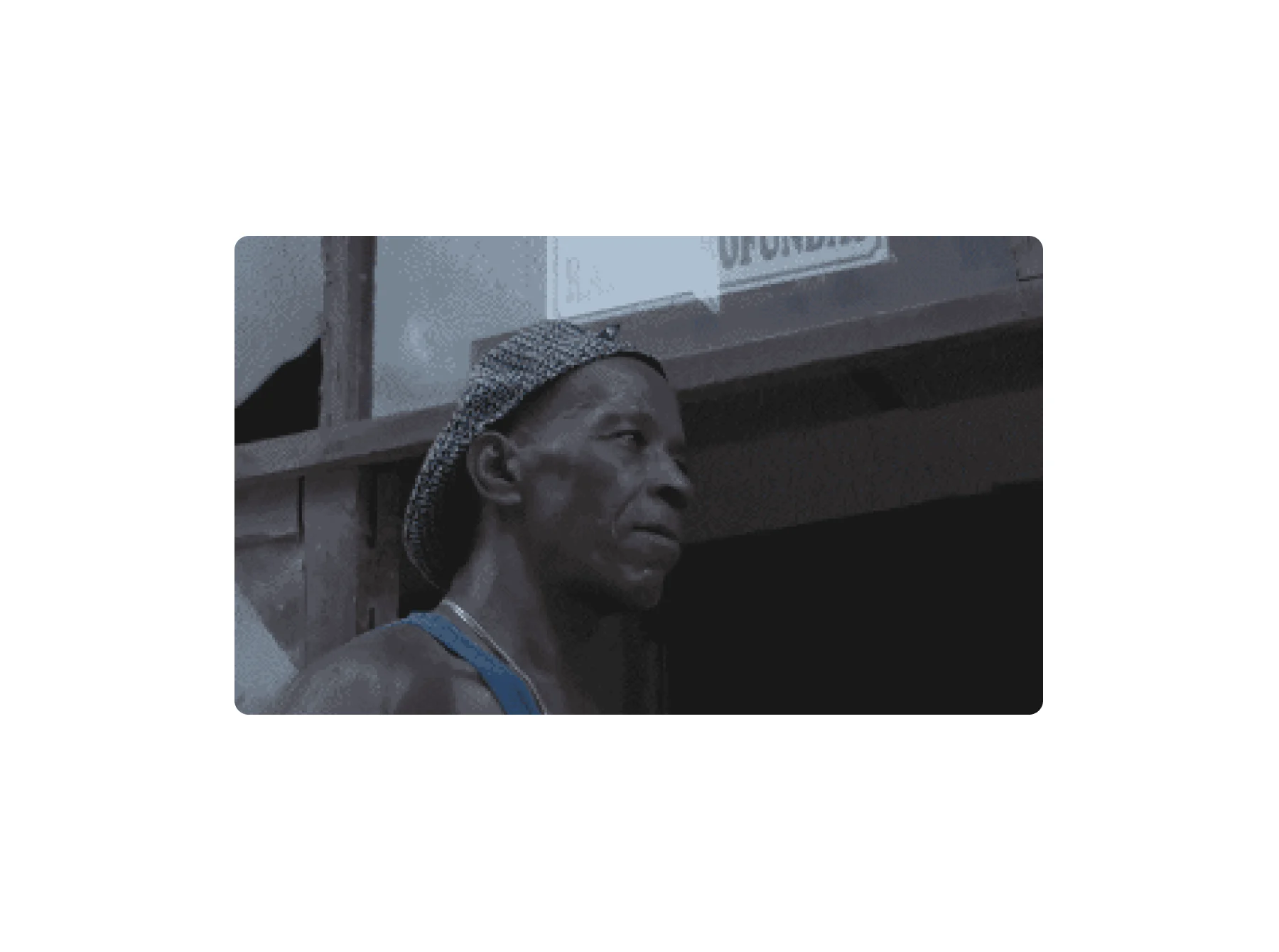
In this series, Gilles Peterson, one of the world’s most influential DJs, shines a light on innovative and important musicians you’ve (probably) never heard of. In this episode, it’s South African seven-piece BCUC under the spotlight.
To kick off the series, Afro-psychedelic band BCUC brought their unique sound and mesmerising performance style to Gilles’ Brownswood Basement. Hailing from Soweto, a township in Johannesburg, the seven-piece traverse genres and generations, drawing inspiration from indigenous music and infusing it with the energy of ritual.
This, laced with hip-hop, punk-rock and funk influences, creates a sound difficult to categorise, which is perhaps why BCUC have coined their very own genre – Africangungungu.
Despite never originally planning to record – for BCUC the essence of their music is bound up in performance – their new record Emakhosini gives voice to ancestral traditions, as well as to the band’s socio-political views on modern Africa.
Following an exclusive live session Gilles caught up with lead singer Jovi and percussionist/backing vocalist Kgomotso. They discuss their spiritual relationship with music, the power of performance to communicate and the music of South Africa, past and present…
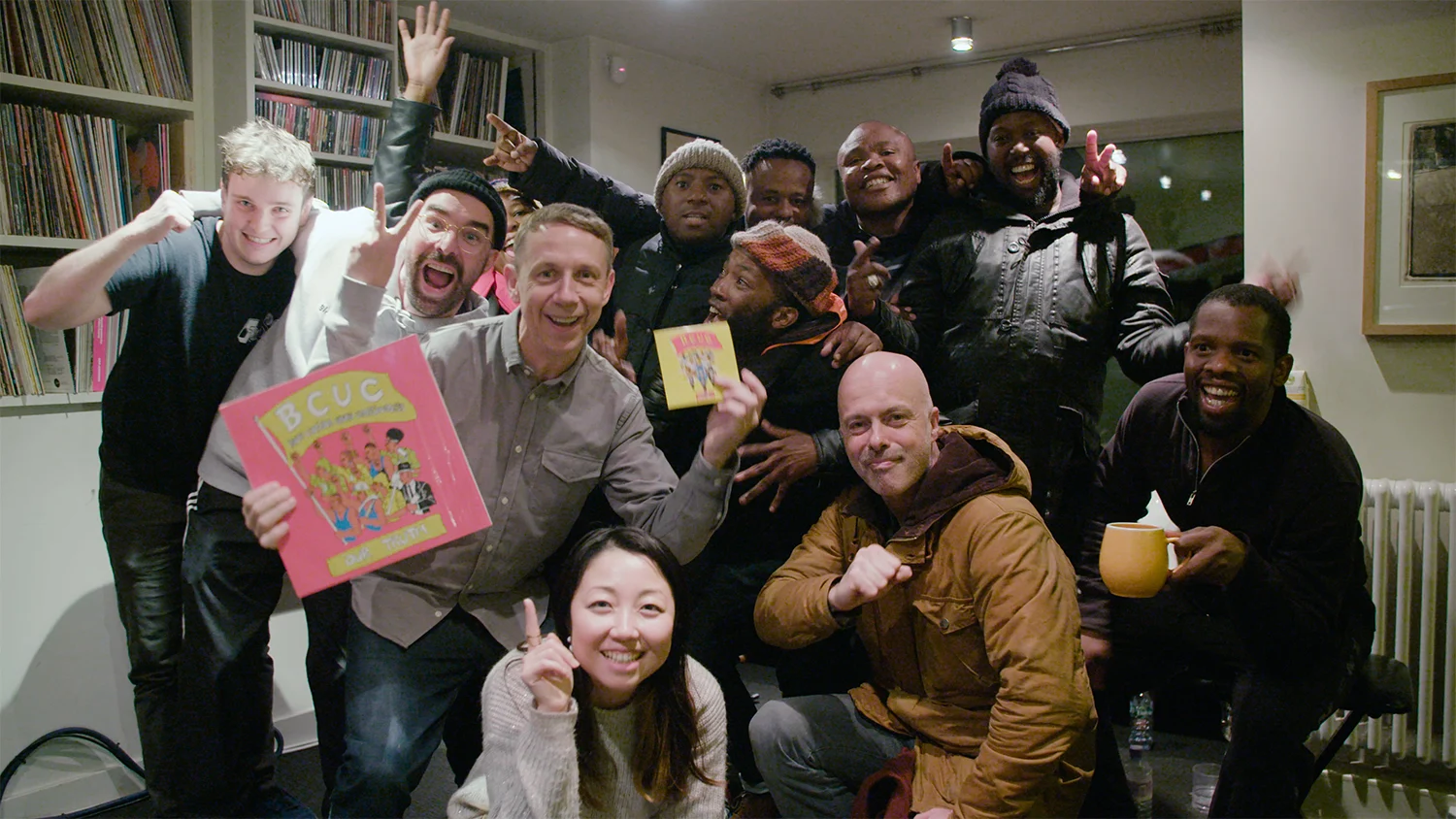
Gilles: If you could collaborate with anyone dead or alive, who would it be?
Kgomotso: Hmm, there are so many people. Hugh Masekela and Brenda Fassie I think would have been fantastic. I think Brenda would have loved our sound – I think she would have freaked out!
Jovi: And also we would like to collaborate with the Nova Twins. Yeah they're dope!
Gilles: What’s your favorite part of experiencing music? What is it that you get the most pleasure out of, when you’re doing what you do?
Kgomotso: When you think you’ve reached the ceiling, but then it opens up. When you think, ok, I'm at this level, but it opens up again. It keeps growing. It doesn't feel like it’s going to stop. That’s my favorite part.
Jovi: I also enjoy when the song tells us where it wants to go. We don’t know which umoya is going to come to us. Umoya in Zulu is like spirit. So we don’t know which spirit is going to come. And once we are inside, it’s like computer files, and these files keep on opening. It is the best experience, like you are travelling in the matrix.
Kgomotso: Yeah, you open your mouth and you don’t even think about it; you don’t know what you are going to do or say, and then it happens. Then you listen to the playback, and it doesn’t even feel like it’s your voice, more like a subliminal message.
Jovi: I believe it is never our voice. We present our families, and our families consist of our mother’s side and our father’s side. When we are singing, they visit us and they take charge of where they want us to go.
So you don't know who is going to come, and you don’t know where they are going to lead you. You just have to receive. When we are singing, somebody might think that we are giving, but we are receiving, and beaming out. We are just vessels of music.
Gilles: What are you listening to at the moment? Have you got any music that has blown you away or got you excited?
Kgomotso: Right now I am obsessed with SZA, I’m listening to her constantly. But also at home, a lot of Gqom is playing in the streets, so I can’t help but be part of it. It’s amazing to be aware of a situation at home that is so big and so amazing. It’s nice to hear that sound playing in Europe; in France last year a lot of DJs were playing it.
Jovi: I’m listening to a lot of Ella Fitzgerald, and a lot of older music because we think for us to go forward as a band, we need to listen to music of the past. I’m also a big big fan of South African music that was never recorded. Like we did a homage to Stimela. It’s known for being a Hugh Masekela song, but it’s actually a traditional South African song. So it’s me discovering where this music comes from.
Kgomotso: At home we are fortunate enough to be aware of music that is not even recorded - traditional, ceremonial music. It’s not meant to be recorded, it’s the kind of music that is meant to be lived.
Jovi: I think it’s the nature of the place; South Africa is a very nostalgic country. The honeymoon is over, we don’t have Nelson Mandela to hold onto now. So we only have our history and our perceived future.
Our perception of the future is that we are going back to learn who we were before we lost our way. And for a band like us, we do not say it’s your fault. We are band that says, this is where we are now. We’ve got suggestions and solutions of where we can go. We are singing love songs to the world.
Love songs are not only about making love, love songs are also about respecting where you are, where you are coming from and appreciating the people around you. It’s forgiving yourself before you think of forgiving other people. We find ourselves born where we are born but we choose how we act. Be fair, with love, but be frank, with love, you know?
Gilles: How do you think people are discovering your music, and what’s your plan for connecting with more people?
Kgomotso: Word-of-mouth helps, and in order for word of-mouth to work, the listener must be invested in what we are doing.
Jovi: I don’t think we have a plan, and I don’t think tomorrow we will have a plan. We are a band, we will never be a brand. All we do is music.
Maybe we will get to whatever people perceive as being “success,” but it’s not our aim to be successful, it’s our aim to make successful, memorable shows. It’s only now that we are learning to record. We were not even intending on recording. Just perform, just play.


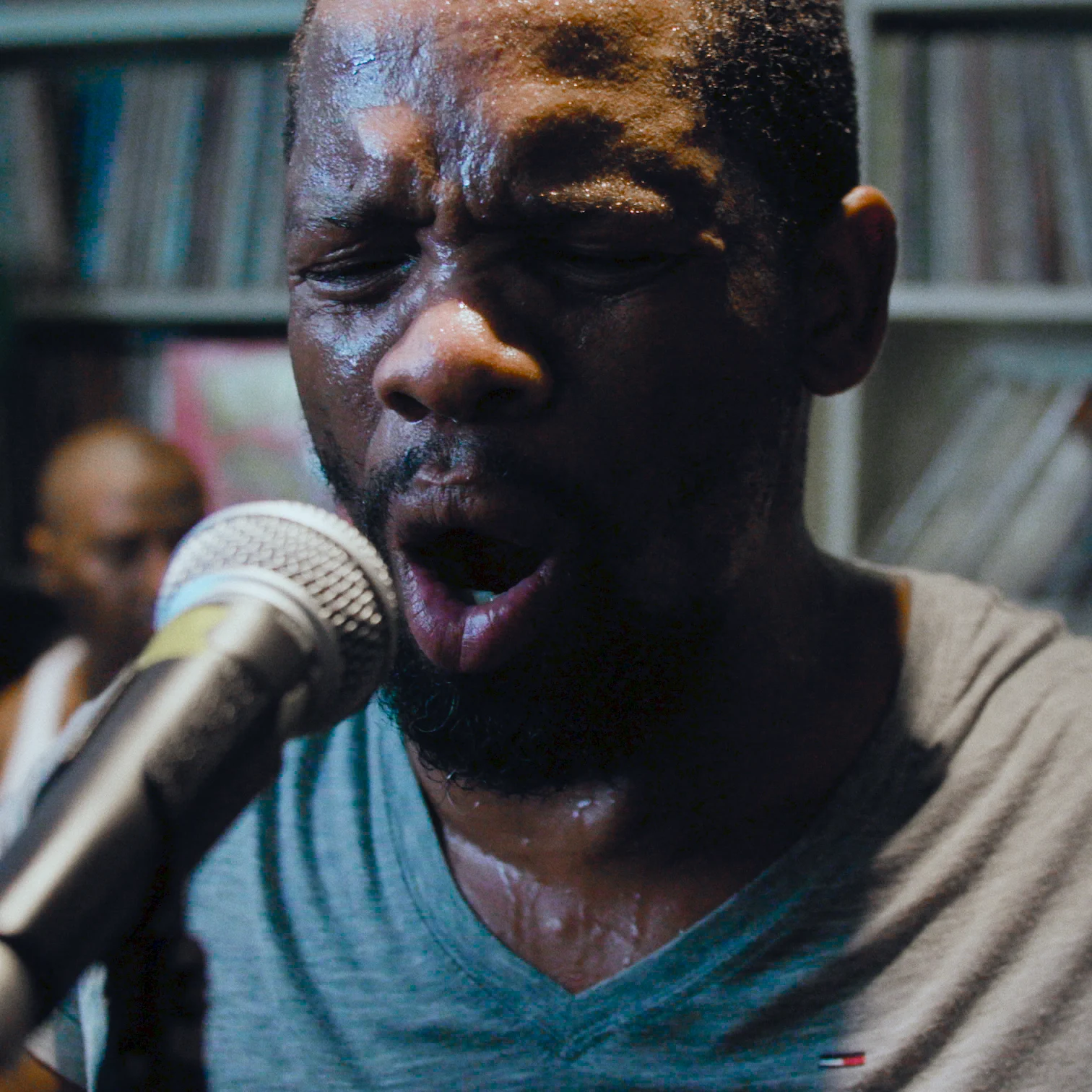
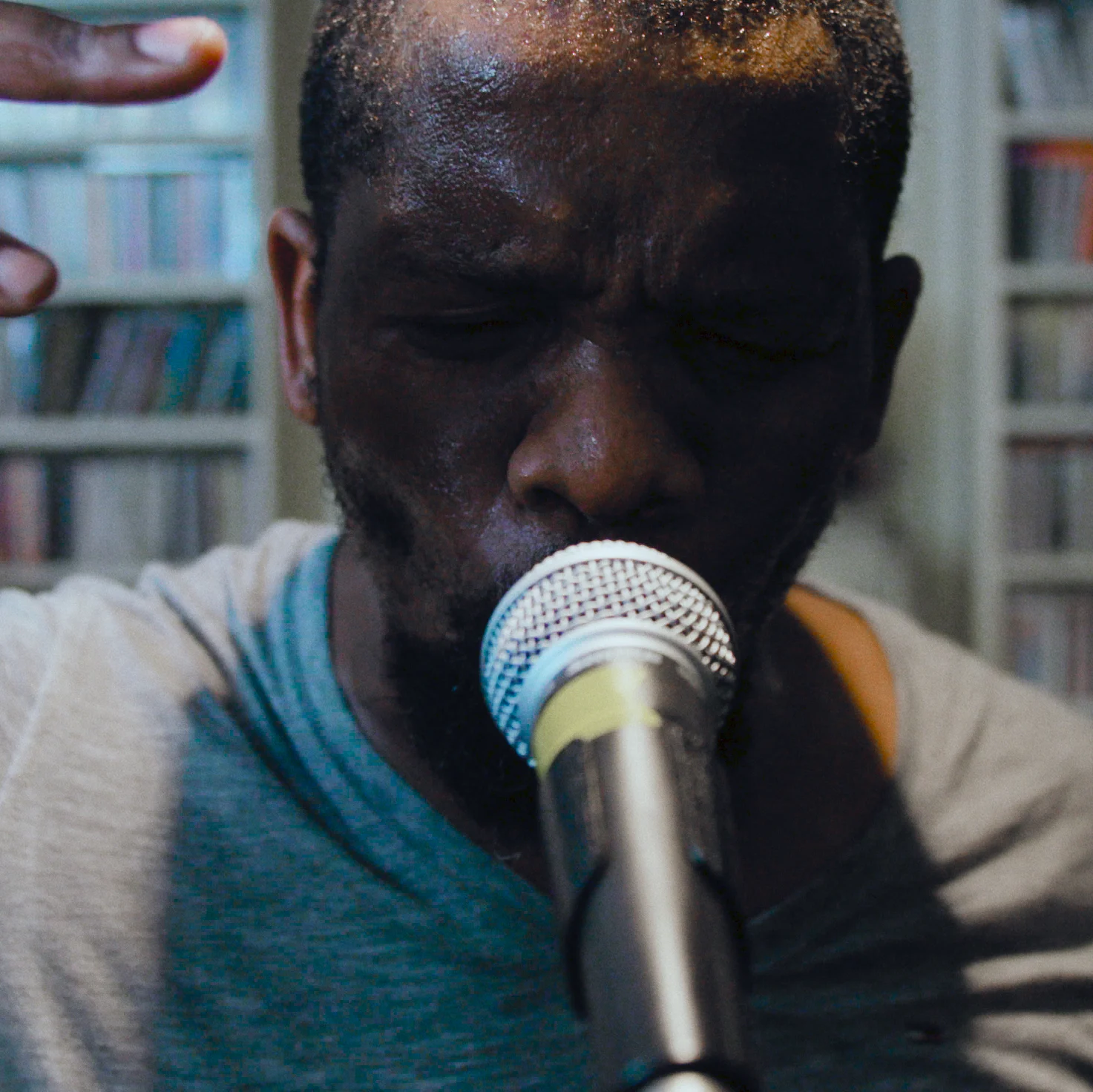

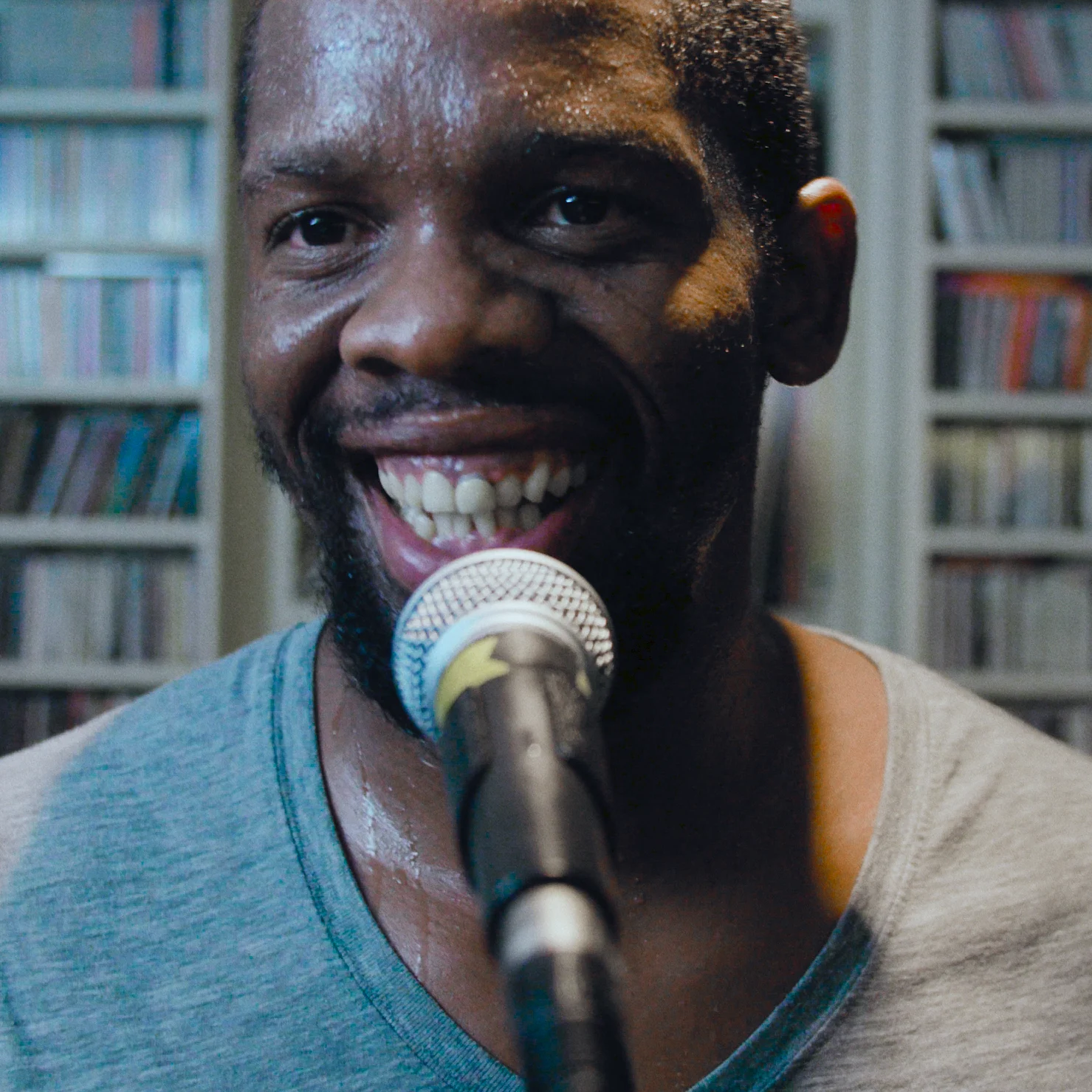
Gilles: It's very refreshing to hear you talk about that. It’s true, listening to you, it’s not affected by outside forces. But that’s difficult as things go on, and keeping that mindset when fees get higher, or someone might be getting better hotels…
Kgomotso: That’s when the hard conversations happen, because as a team, I question myself all the time. Does this feel good? Is my head getting too big?
Also we surround ourselves with our families who ground us. When I'm at home, it doesn’t matter how big the show was, I still have to clean, cook, do laundry, chores.My mum still sends me to do errands for her.
The music itself requires you to not get too big. When you get too big, the music sounds bad. The music leaves you because you are not paying it respect. This music requires a certain type of respect and attitude. If you lose these things, the shows do not go so well.

Gilles: What does it feel like being the only woman in this group?
Kgomotso: I think it’s kind of fun. It’s my boys, my people, my family, my brothers. I challenge them as much as they challenge me. I’ve never felt like I was outside looking in. I feel like part of the team. We’re just people man.
Jovi: Our families are run by women, so for us to have Kgomotso, it means she is our leader, because we see women as leaders.
